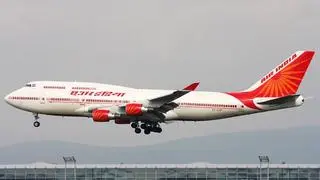Just as the world had started opening up after the Covid-19 pandemic, the latest strain of the virus — Omicron — has forced countries to once again look at shutting down their borders.
The United States and many countries in Europe have put in place restrictions which can be termed as ‘soft lockdown’ for the general public, and ‘full lockdown’ conditions for the non-vaccinated. Some countries like Thailand have re-imposed mandatory quarantine for those entering the country.
However, during the last few days, some countries have lifted certain restrictions.
Mitigating threats
Omicron struck the global aviation industry just as recovery was being witnessed. Figures released by the International Air Transport Association in late December show that demand for air travel in October 2021 measured in revenue passenger kilometres was down by just under 50 per cent compared to October 2019. Global domestic air travel was down 21.6 per cent compared to October 2019 — better than international — largely driven by the robust domestic numbers that the Indian and Chinese markets reported.
Related Stories
Indian aviation to report record losses of ₹20000 cr in FY22: CRISIL
CRISIL report says the loss would be 44 per cent more than it had reported in FY21.Globally, airlines are pinning their hopes on rising vaccination rates and better testing and reporting mechanisms. They believe that this will help the market bounce back, despite hiccups like the Omicron variant. Ensuring the health and safety of passengers will continue to be the top priority in mitigating Covid threats. Seamless and tamper-proof validation of passengers’ real-time health status, vaccination certificates and other critical information at scale are key to making air travel safe.
Digital ecosystem
All stakeholders — the government, international agencies such as the International Civil Aviation Organization and the International Air Transport Association, civil society and border agencies — need to make use of technology to protect their lives and livelihood.
Digital health passports (unique digital travel id) for international and domestic travel will pave the way for growth in aviation. This unique id is supported by blockchain technology to ensure the sanctity of data, reports and certifications. Digital health applications should be envisioned as an integrated biometric-enabled framework for real-time test results, travel details and vaccine status, and be interfaced with global initiatives like the IATA Travel Pass. This infrastructure will also ensure fast-tracking of passengers with digital health passports and hence limit pressure on aviation assets which, in the last two years, have successfully created an digital ecosystem for a touchless passenger journey.

Manu Tandon is Vice President – Middle East and South Asia of Elenium Automation
An investment in creating such infrastructure with support from IATA, ACI and technology providers will help rescue aviation industry and India, with its strong credentials, can surely guide the world in creating this critical technology infrastructure.








Comments
Comments have to be in English, and in full sentences. They cannot be abusive or personal. Please abide by our community guidelines for posting your comments.
We have migrated to a new commenting platform. If you are already a registered user of TheHindu Businessline and logged in, you may continue to engage with our articles. If you do not have an account please register and login to post comments. Users can access their older comments by logging into their accounts on Vuukle.